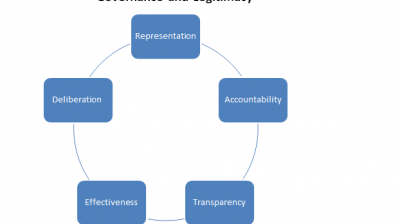The legitimacy of governance of climate science, policy and finance
This paper assesses the democratic legitimacy of a number of transnational governance arrangements in the field of climate change. Institutions for climate science, policy and finance are singled out for detailed analysis. The legitimacy of these institutions is closely linked to the extent to which climate change is considered a pressing global challenge.
The representativeness of the traditional bodies, the Intergovernmental Panel on Climate Change (IPCC) and United Nations Framework Convention on Climate Change (UNFCCC) is generally considered positively. The effectiveness of the UNFCCC and its Kyoto Protocol are strongly contested, however. The Major Economies Forum (MEF) with fewer participants can be considered less representative and progress is lacking in this forum too, since it is driven by a specific agenda of its inceptor, the United States. Initiatives by NGOs and the private sector are considered ad-hoc and subject to their estimation of international agreement on climate mitigation action.
The distrust of recipient countries in the governance of climate finance undermines the legitimacy of World Bank-related funds, although some of these concerns have been be addressed in the governance of the newly established Green Climate Fund. The question is how a future climate regime, notably the one that is currently subject of international talks due to end in Paris in December 2015, will address legitimacy concerns in this highly politicised area. Also, how can non-state and local governments be included in a representative, democratic and effective way?
This paper is part of a project on the legitimacy of transnational governance, jointly carried out by Clingendael and The Hague Institute for Global Justice in 2012-2014.





